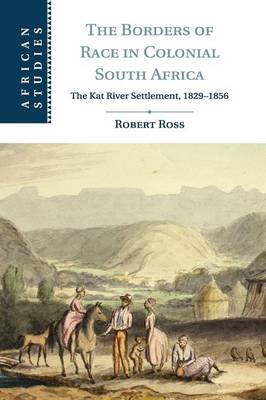African Studies
3 total works
In a compelling example of the cultural history of South Africa, Robert Ross offers a subtle and wide-ranging study of status and respectability in the colonial Cape between 1750 and 1850. His 1999 book describes the symbolism of dress, emblems, architecture, food, language, and polite conventions, paying particular attention to domestic relationships, gender, education and religion, and analyses the values and the modes of thinking current in different strata of the society. He argues that these cultural factors were related to high political developments in the Cape, and offers a rich account of the changes in social identity that accompanied the transition from Dutch to British overrule, and of the development of white racism and of ideologies of resistance to white domination. The result is a uniquely nuanced account of a colonial society.
This book provides a detailed narrative of the Kat River Settlement in the Eastern Cape of South Africa during the nineteenth century. The settlement was created by the British to use the Khoekhoe as a living barrier between the Cape Colony and the amaXhosa. It was fought over with some regularity, however, and finally broken up after some of the Khoekhoe joined the amaXhosa in their war against the colony. Nevertheless, in the time that the settlement existed, the Khoekhoe both created a fertile landscape in the valley and developed a political theology of great importance for the evolution of South Africa. They were also the subjects of - and participants in - the major debates leading to the introduction of a liberal constitution for the Cape in 1853. The history of the settlement is thus crucial in understanding the development of both colonial racism and the creation of the colony's non-racial democracy.
This book examines the ways in which racial and economic stratification were brought to coincide in pre-industrial South Africa by describing in detail the history of one group, the Griquas of Philippolis and Kokstad. These people, of very mixed origins, were central, both physically and symbolically, to the processes of South African history in the nineteenth century. They were able to gain control over a very large area of the southern Orange Free State, where they established what was, for a time, a prosperous little state. Very many Griquas became Christian, although this did not mean that they were dominated by the missionaries - rather the reverse. A substantial number were literate. Moreover, they made use of all possible means of developing their own wealth, first as ivory hunters and then as successful horse and sheep ranchers. In short, they fulfilled all the criteria for acceptance into the ruling class of white South Africa. except that they were not white.

